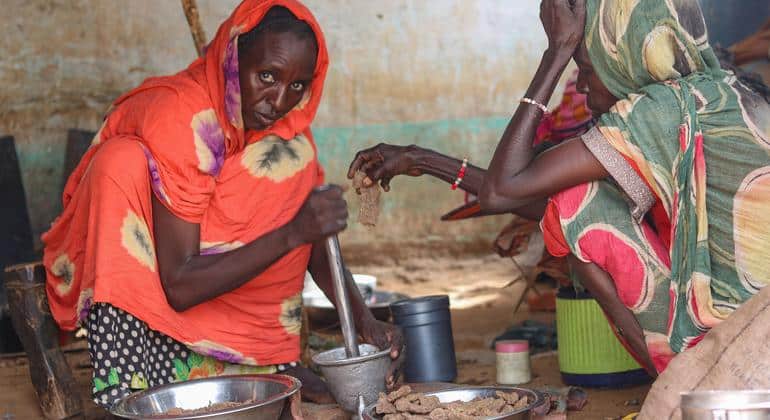The Food and Agriculture Organization (FAO) and the World Food Programme (WFP) have issued a troubling warning about the escalating global food crisis. A recent report reveals that acute food insecurity could intensify in 16 countries and territories between now and May 2026, endangering the lives of millions.
The study indicates that six nations are particularly threatened by famine: Sudan, Palestine, South Sudan, Mali, Haiti, and Yemen. In these areas, some communities are anticipated to face famine conditions or be on the brink of them. Additionally, other countries like the Democratic Republic of the Congo, Myanmar, Nigeria, Somalia, Syria, and Afghanistan are also significant concerns. The food crisis extends to Burkina Faso, Chad, Kenya, and the Rohingya refugees in Bangladesh.
Acute food insecurity manifests when families cannot meet their basic food needs, leading to drastic decisions such as skipping meals or selling essential belongings. In phases 4 (emergency) and 5 (famine) of this crisis, hunger becomes a deadly threat. Cindy McCain, Executive Director of the WFP, emphasized that “famine is not inevitable” and that there are tools and knowledge available to prevent it. However, she stressed that it is crucial to act immediately, leveraging the necessary resources and political will.
Children are the most affected in this scenario, as malnutrition weakens their immune systems, increasing the risk of severe illness and mortality. The report warns that any delay in action will not only jeopardize lives but also increase the costs associated with humanitarian aid.
Among the main causes of this food crisis are conflict and violence, economic crises, extreme climate phenomena, and a notable decline in humanitarian aid. Dongyu Qu, Director-General of the FAO, highlighted that while conflicts are responsible for much of the hunger, economic instability and climate change are exacerbating the situation, leaving millions unprotected.
In light of this grim outlook, the FAO and WFP are urgently calling on the international community to take immediate action. Proposed measures include lifesaving humanitarian assistance, anticipatory interventions before crises worsen, and investment in resilience to address the root causes of food insecurity.
Without an adequate response, the risk of famine will increase, with devastating consequences not only for regional stability but also for lives that could have been saved. In this critical context, every contribution to the fight against hunger becomes an essential act of providing food, nutrition, and livelihoods to the most vulnerable.
Referrer: MiMub in Spanish
